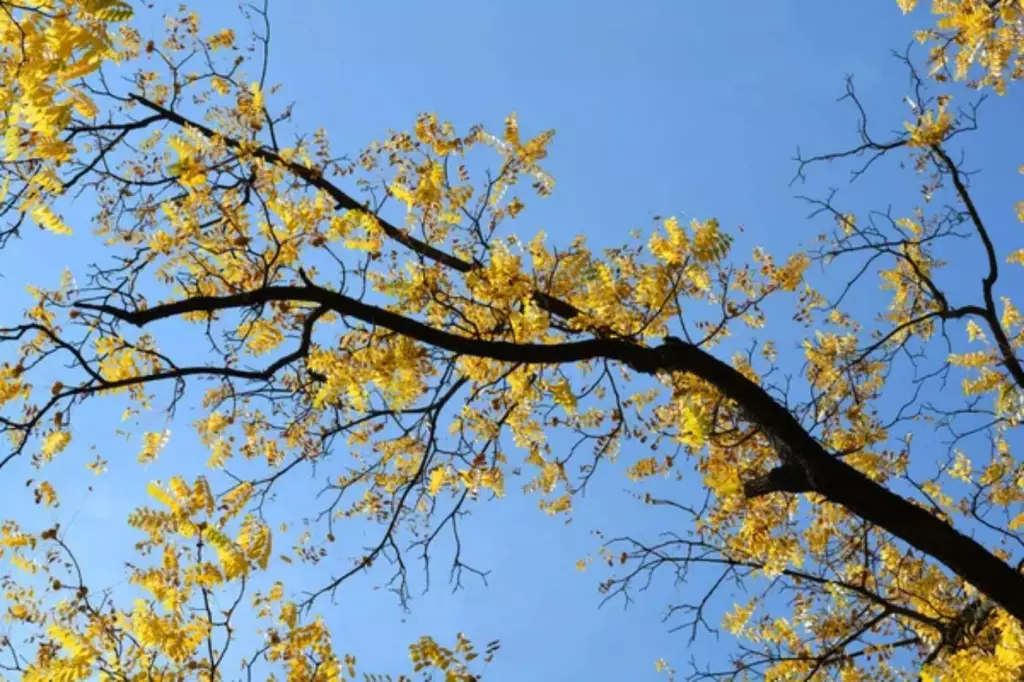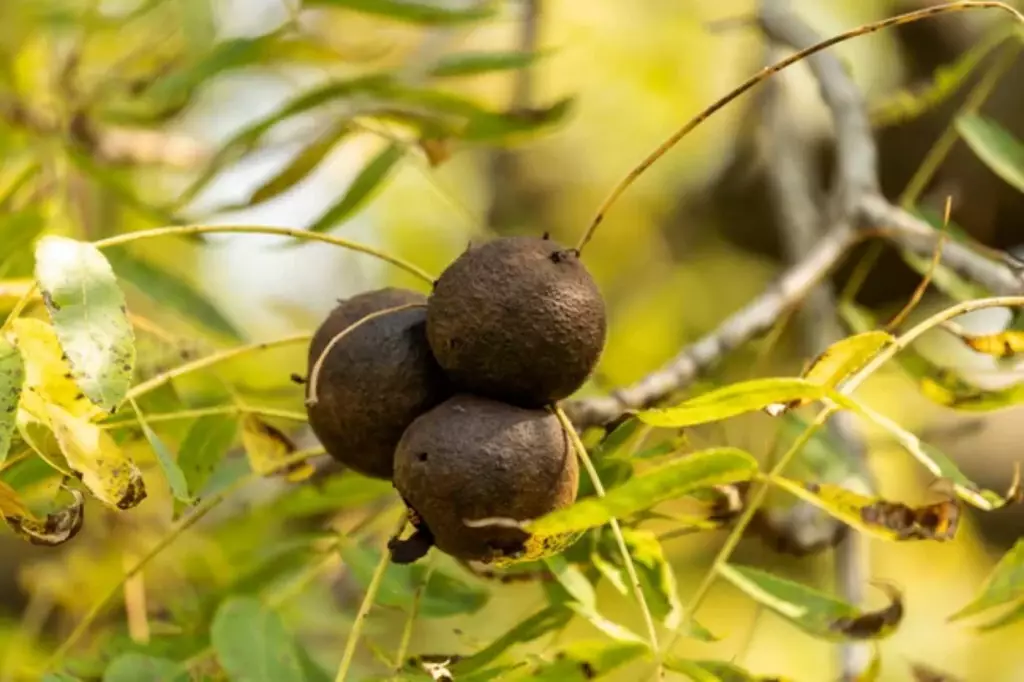How Long Does It Take for Black Walnut Trees to Mature?
Black walnut trees can reach impressive heights of up to 120 feet (40 meters) and widths of 50 feet (15 meters) in optimal conditions. These measurements can make you wonder how long it takes for these trees to mature to this size. To put an end to your curiosity, here’s an article tackling how long it takes for black walnut trees to mature.
If you grow black walnut trees for their nuts, you will need to wait for at least seven years. If you're raising it primarily for wood, it needs at least 25 years to mature properly. Growing these trees requires a long-term commitment of up to 40 to 60 years before the trees thrive completely.
These trees provide multiple benefits, such as shade and food, and play an essential role in the environment. Knowing how long it takes for them to grow can help you plan your landscape and enjoy their valuable offerings. This article covers what you need to know if you want to grow black walnut trees.
Understanding the time it takes for black walnut trees to mature is crucial for planning your farm's growth timeline and anticipating when you'll begin to see returns on your investment, in your venture to start a walnut farm from scratch.
Summary
- You need to wait for 7–15 years for a black walnut to produce nuts. If you want it to be hardwood, you'll need to wait 25 years for it to properly grow.
- Starting with a grafted tree is much better than a seedling, as it proves to have a faster growth rate and gives you the benefit of choosing a tree with superior quality traits.
- If you are opting to plant a black walnut tree near your garden, ensure that your crops are juglone-tolerant.

On this page:
Black Walnut Takes 25 Years to Mature
When it comes to maturing, black walnut trees have different time frames depending on their purpose. If you're growing a black walnut tree for its delicious nuts, you may expect it to take up to seven to fifteen years to begin producing. On the other hand, if you're interested in harvesting its wood, the tree will need at least 25 years to mature fully.
The growing stage of these trees can be divided into several phases:
Seedling stage is the first stage of growth
During this stage, the black walnut tree develops from a seed. This lasts for the first two to three years of the tree's life. During this stage, the tree develops a taproot and a few lateral roots. The tree grows slowly and may only reach a height of a few feet.
When growing a black walnut tree, you might prefer to plant a seedling or use a grafted tree. While both methods have their benefits, grafted trees tend to display a faster growth rate, plus they capture and preserve the genetic identity of the trees with superior quality.
Juvenile stage is the next stage of growth
This stage lasts from the third to the eighth year of the tree's life. During this stage, the black walnut tree grows rapidly, adding several feet of height each year. The tree develops a more extensive root system and begins to produce branches and leaves.
The young adult stage starts from the 9th until the 15th year
During this stage, the black walnut tree continues to grow rapidly and begins to produce flowers and fruit, although it may not produce a significant crop until it reaches maturity.
The mature stage is the last stage of growth
This stage begins around the fifteenth year of the tree's life and lasts until the end of its life. During this stage, the black walnut tree reaches its full height at 100 to 120 ft. It also begins to produce a significant crop of nuts at around year 20. The tree may continue to grow slowly, but it will not add much height beyond this point.

Facts About the Black Walnut Tree
The black walnut tree, scientifically known as Juglans nigra, is a large deciduous tree native to eastern North America. As one of the many walnut varieties, this tree provides not only aesthetic appeal but also delicious and nutritious nuts.
We know for a fact that these trees can produce nuts at about 15 years of age but mature only when they reach 25 years of age. These trees are an interesting subject, and below, you’ll learn more facts about their characteristics and growth.
-
Black walnut trees can reach impressive heights of up to 120 feet (40 meters) and widths of 50 feet (15 meters) in optimal conditions. They make excellent shade trees for larger properties, adding a touch of beauty to your landscape.
-
These trees possess alternate leaves that are 12–24 inches in length, consisting of 15–23 dark green leaflets that are 2–5 inches long.
-
They emit a spicy aromatic scent from their leaves, stems, and nut husks, making them easily recognizable. However, the nut itself has no pungent odor.
-
The foliage of these trees is light and airy, with fern-like leaves providing a delicate atmosphere. This unique feature makes them a great choice for those grasses and groundcover plants that can thrive under their canopy.
-
Throughout its life cycle, the black walnut tree will occasionally experience a bumper crop approximately every fifth year, resulting in a large number of nuts produced. While this is good for the wildlife elements residing in the area, it can be a disadvantage to vehicles, structures, or people onto whom it might fall.

Pros and Cons of Growing Black Walnut Tree
If you’re not yet convinced about growing a black walnut tree after knowing its time commitment, here are some of its pros and cons to help you decide.
Pros of growing a black walnut tree
They have a highly valuable timber
Black walnut is a valuable hardwood that is highly prized for its beautiful grain and rich color. The wood is used for furniture, flooring, and cabinetry and can fetch high prices. A 20-inch black walnut tree can fetch you $700–$800.
They produce edible nuts
Black walnuts produce a delicious and nutritious nut that you can eat raw or use in cooking and baking. The nuts are high in protein, healthy fats, and other nutrients.
They are valuable to the environment
Black walnut trees are excellent for the environment as they provide shade, clean the air, and help prevent soil erosion.
They provide habitat to many wildlife species
Black walnut trees provide habitat for many species of wildlife, including birds, squirrels, and other small animals.

Understanding how long black walnut trees take to mature is a key aspect of growing them for profit, as it influences your long-term planning and the timing of your farm's financial returns.
Cons of growing a black walnut tree
They are slow growers
Black walnut trees are slow-growing and can take many years to reach maturity. This can be a disadvantage if you are looking for a fast-growing tree for landscaping or other purposes.
They can be toxic
Black walnut trees produce a chemical called juglone, which is toxic to some plants and can inhibit their growth.
If you have a 5-acre land and considering planting a fruit-bearing tree near your garden, you can either skip planting a black walnut tree or choose a juglone-tolerant crop.
They can be messy
Every 5 years after reaching maturity, these trees produce a bumper crop, which is an abundance of nut production. This can produce tons of small golf-ball-sized green balls, which can litter the streets, sidewalks, and even your yard.
They have thick-husked nuts
Black walnut trees produce a hard, thick husk around the nut, which you might find difficult to remove. This can make harvesting and processing the nuts a time-consuming and labor-intensive process.


